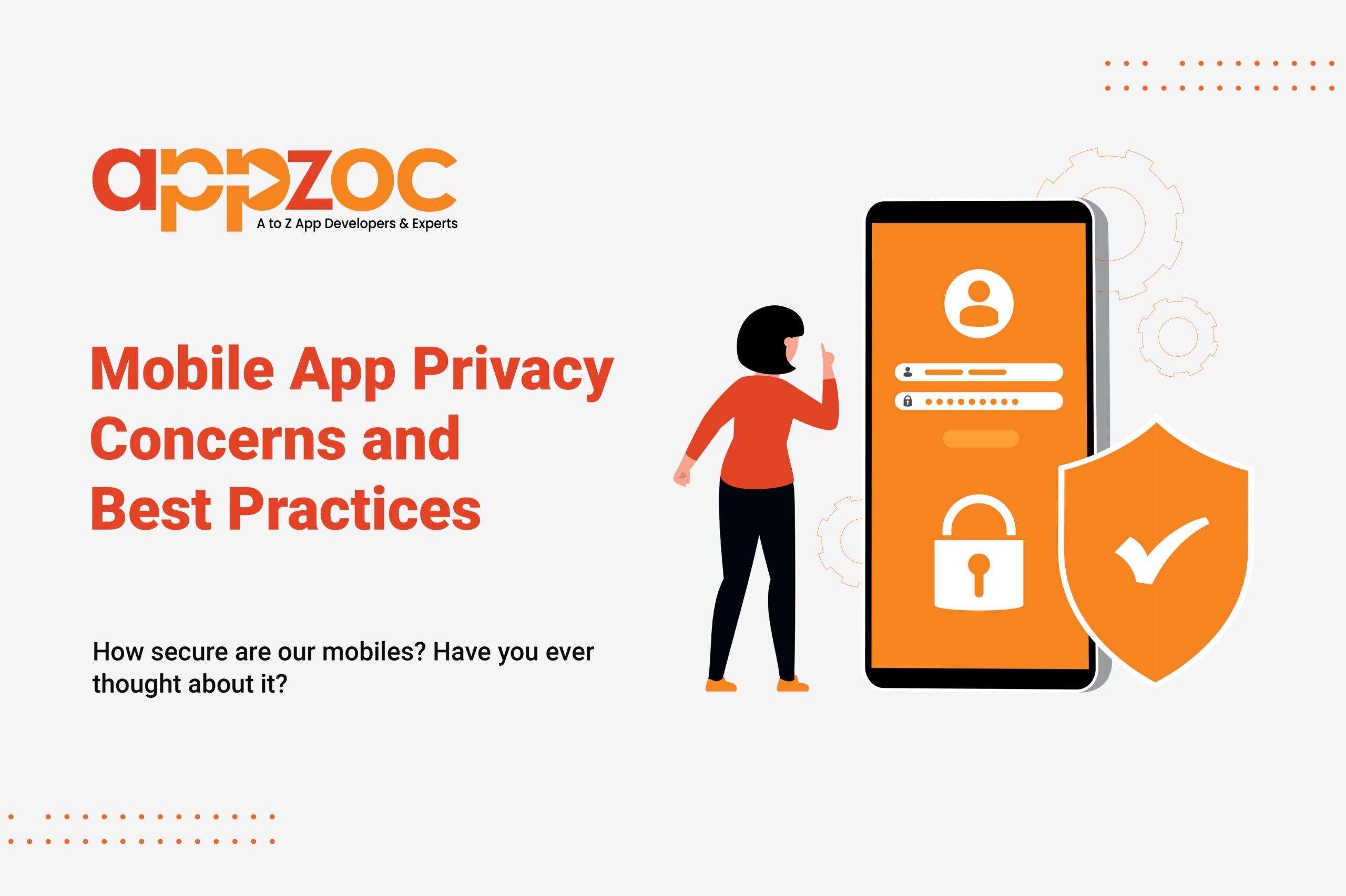
Flutter
Make the most of this cutting-edge technology by developing apps quickly! Our Flutter solutions have amazing features that can be used to create sleek, high-performance apps that can scale seamlessly across platforms.

How secure are our mobiles? Have you ever thought about it? Well, with the rate at which websites and personal mobiles are being hacked, this topic needs some serious thought. This is why we, as one of the most reputed android application developers Cochin, know how to understand all this and even give you optimal solutions for addressing mobile app privacy. There are many practices that both private individuals and even companies can utilize to get the best results in their mobile apps. Today, if you are a mobile app owner, this blog will explain all the concerns that need your attention and how to protect the mobile app from them too.
For those, who are just stepping into the world of mobile applications, this may seem a bit unnecessary, but our expertise has proved different. Today, if you do not secure your mobile app with the right security parameters, then it risks the privacy of your users too. That is the last thing you want to step into and destroy your credibility. Have you heard that more than 70% of cheat cases and transactions have been picked up via mobile apps from 2018 onwards? The numbers have been rising every quarter. This is why it has been a huge concern, as we literally live half of our lives on these smartphones.
We are here to unleash how we can make our mobile applications a safe spot and less accessible to the cyber criminals that hover in the virtual space and exploit our trust.
The inability to encrypt perfectly: Technically speaking, encryption means data is transposed into a code that can be viewed after the translation is done with the help of a security key. So, sometimes, this key is lifted by hackers and that causes the issue.
The Ills of Reverse Engineering: Since each app contains a lot of metadata, there are always chances that hackers can get a fair understanding of the data behind the scenes from these codes. Reverse engineering is an issue as it discloses to the hacker how the backend functions and this makes way for a data leak.
Insecure Passwords: One of the highlighted factors that we as the android application developers Cochin always find is that simple and lame passwords can cause a lot of havoc to the end user. So, take time to follow the authentication rules and build a solid password that certifies the identity and cannot be broken down easily by a hacker. This is why multifactor authentication is used to beat the challenges posed by user breaches.
Storage of Mobile Data: You must have heard about cookies, various databases, and permission to store your search data often. This opens the door for a hacker to access the database within an app. Once the mobile app is jailbroken, all the personal data can be taken and used for plenty of purposes. So this could happen with immense storage of cache data that may give a lot of information to hackers.
The Use of Cryptographic Algorithms
In order to protect mobile app privacy, we need to drive any sort of breaches that affect the encryption. For this, the Best mobile application development Kerala works on this issue from a different angle. It is a must to avoid storing any sort of sensitive and personal information on a smartphone or any mobile device. This would mean that owners should not store passwords and any critical code keys as such text content can be easily retrieved from the server by hackers.
Developers of mobile apps should understand that even if you create a powerful encryption algorithm for the use of the mobile app, it is still not safe. Hackers will know how to decrypt information if only very simple key management parameters are used in the process. If your algorithm has not been accepted by the development security system, then it means you need to strengthen it
Avoid Reverse Engineering
Reverse engineering is a matter of concern for many. Most often, developers have been trained to build mobile application replicas or duplicates, without actually knowing the real source code of the application. They may not have access to the original codes also. For this, the one solution that expert developers use is the minification process. This will cease the problems of reverse engineering to a large extent. As per the process, the final code or the UI is made more pleasant, readable, and attractive for users in the long run. This means nothing to a front-end user. But at the backend, it means that the unnecessary commas, full stops, hyphens, brackets, and other functionalities are removed, without compromising the essence of the mobile app. The result is that the hacker cannot understand the real code once the commas and spaces are removed and that prevents them from hacking.
Build Server-Centric Authentication
The present scenario opts for a multi factor authentication to ensure that the server is accessed by known people and known locations. However, one aspect that mobile app developers should take into account is that the encrypted information taken from the mobile owners should be accessible and stored in the server only once the validation process is over. Suppose, is the user has opted for the Remember me option in the mobile app, then make sure that you have not stored such passwords on the smartphone or tablet, as that may disrupt the security strength of the mobile. Also, make sure not to create multiple and different authentication passwords for many devices that you use. That will also hamper security.
Input Validation Checks
For those who seek professional iPhone app developers Kochi, you can be assured that every user input is placed properly. This will be done after a sound validation process. This is done with a lot of care as we have noticed over the years, that hackers try their best to test every input validation process. Once they get access to the input, it is possible for them to break through the security and disrupt the data in a significant manner. For this, developers should ensure that only specific data can be passed through the input field. This input validation method should be uniform across the website and any unreasonable entries will be prevented from gaining the validations.
Protect Data with Threat Models
This is one powerful medium for understanding the issue of cyber attacks in a professional manner. Use threat models to bring on strategies that protect various mobile operating systems and frameworks from being affected by external APIs and to store data effectively. This will help to connect with external platforms and servers without the need of sharing any data in the front round of authentication.
On a Final Note
In this blog, we have covered some of the most fundamental and important Mobile App Privacy Concerns and Best Practices that every company, private user, and developer needs to keep in mind. That will help you to reorganize the data and build the security of the mobile app in no time. The life of the company can get distorted by carelessness, so it is better to make an end to such issues at the earliest.